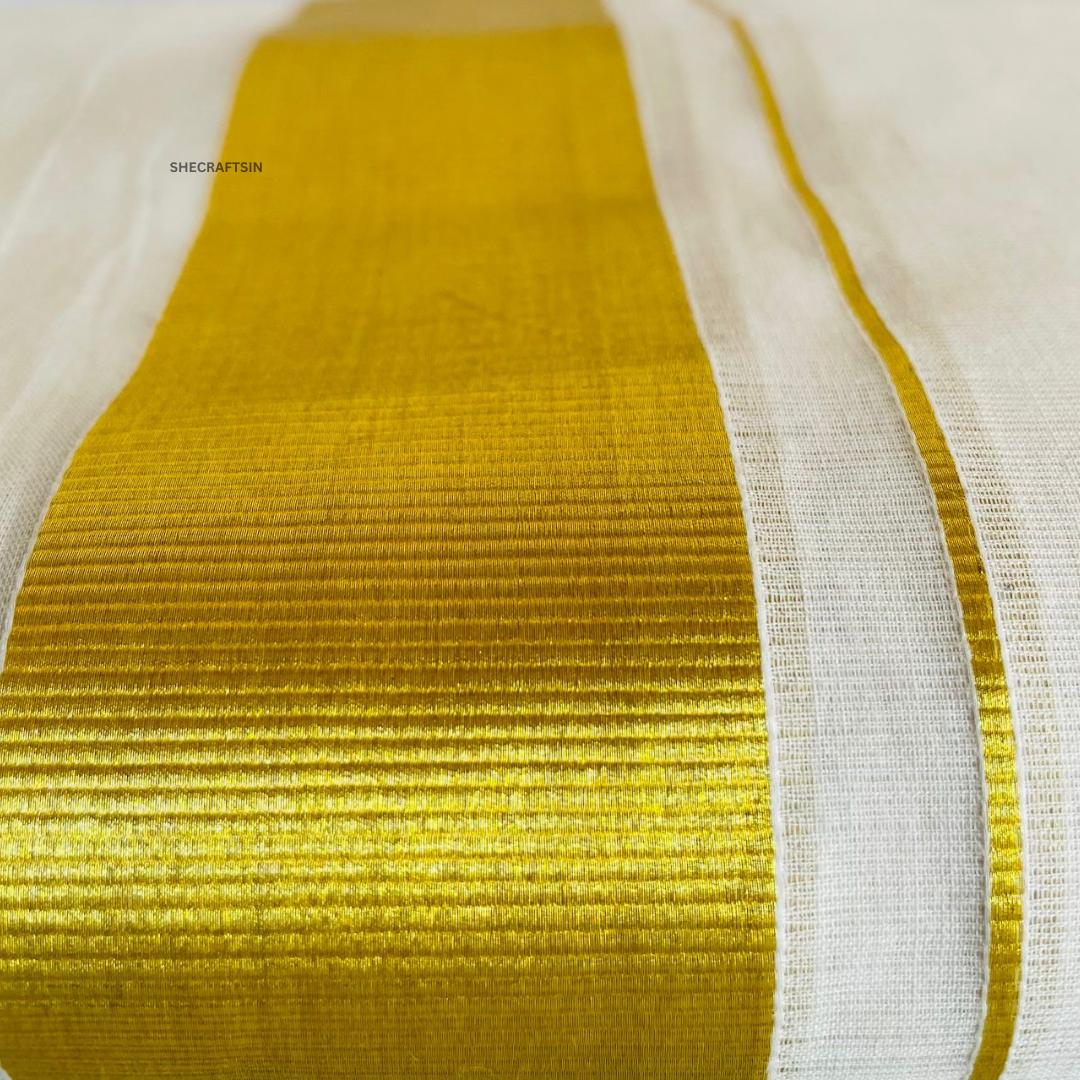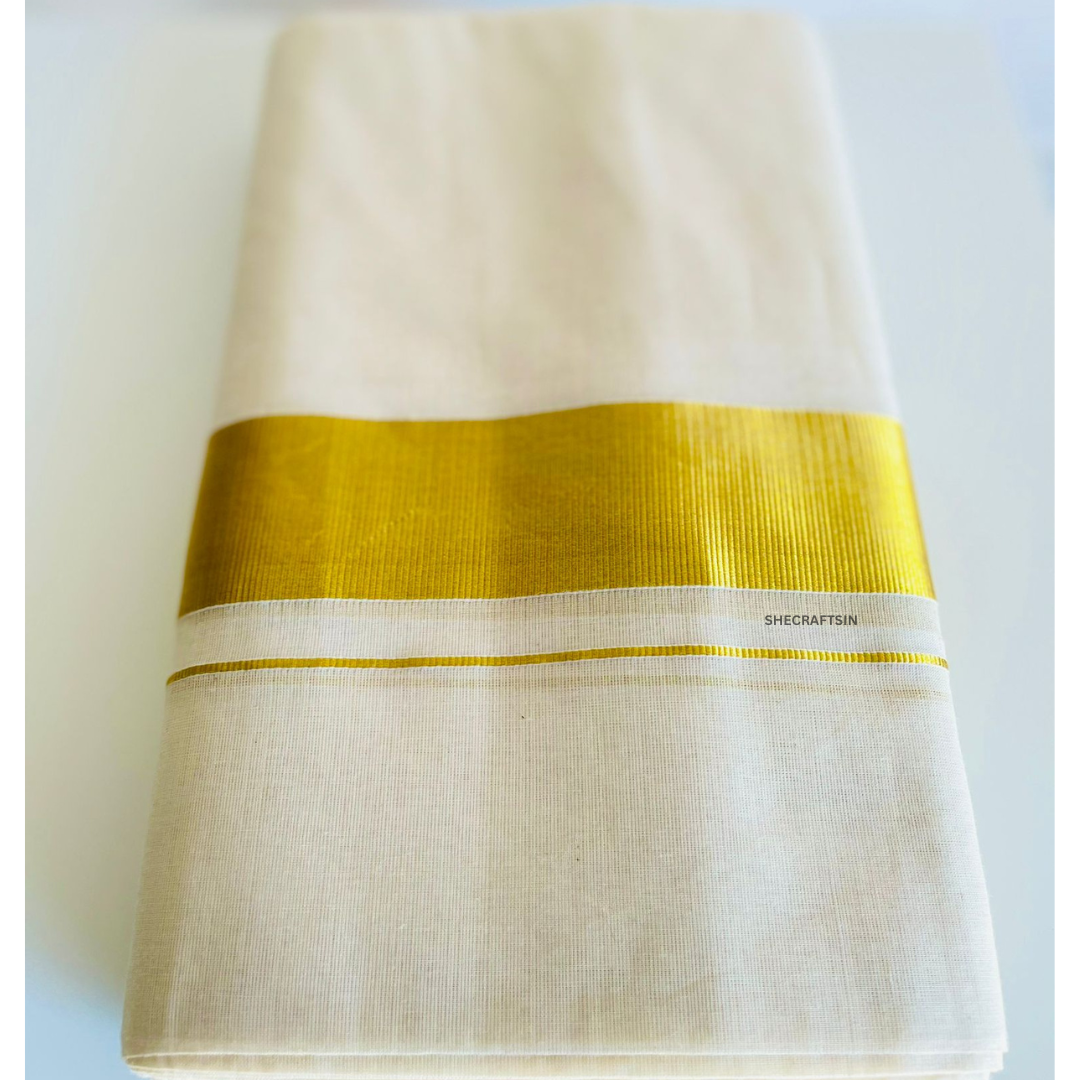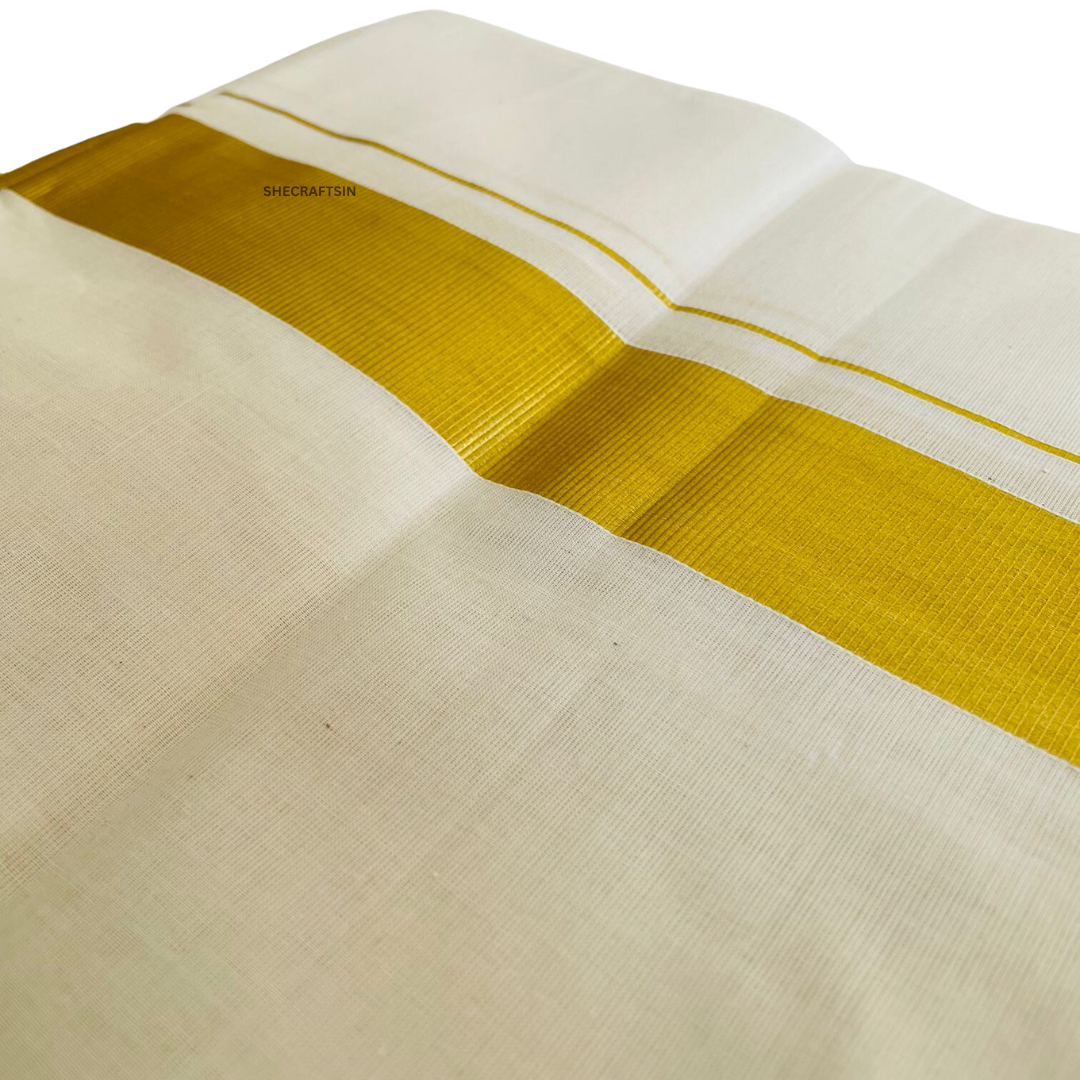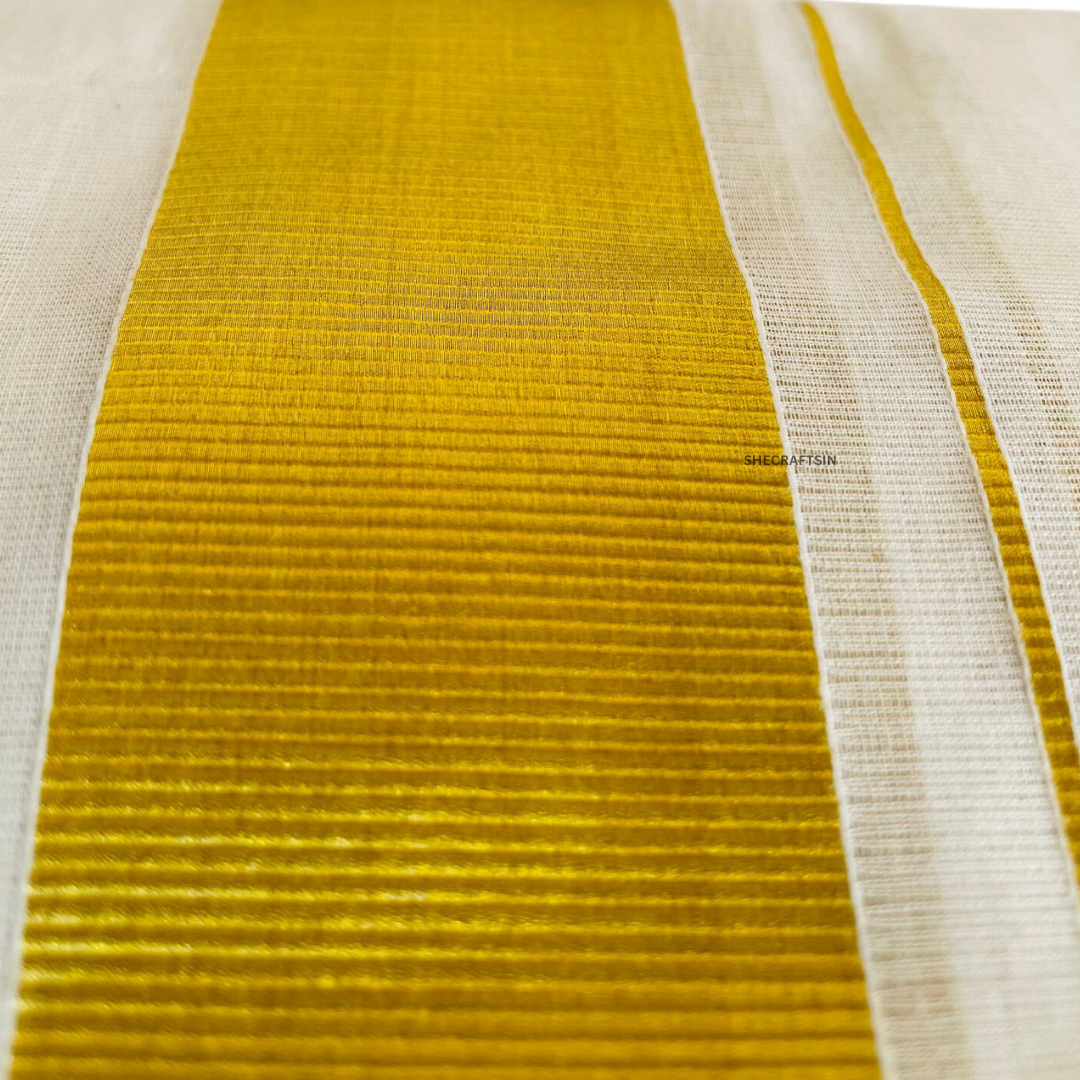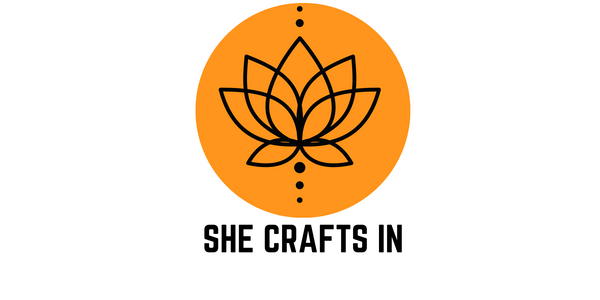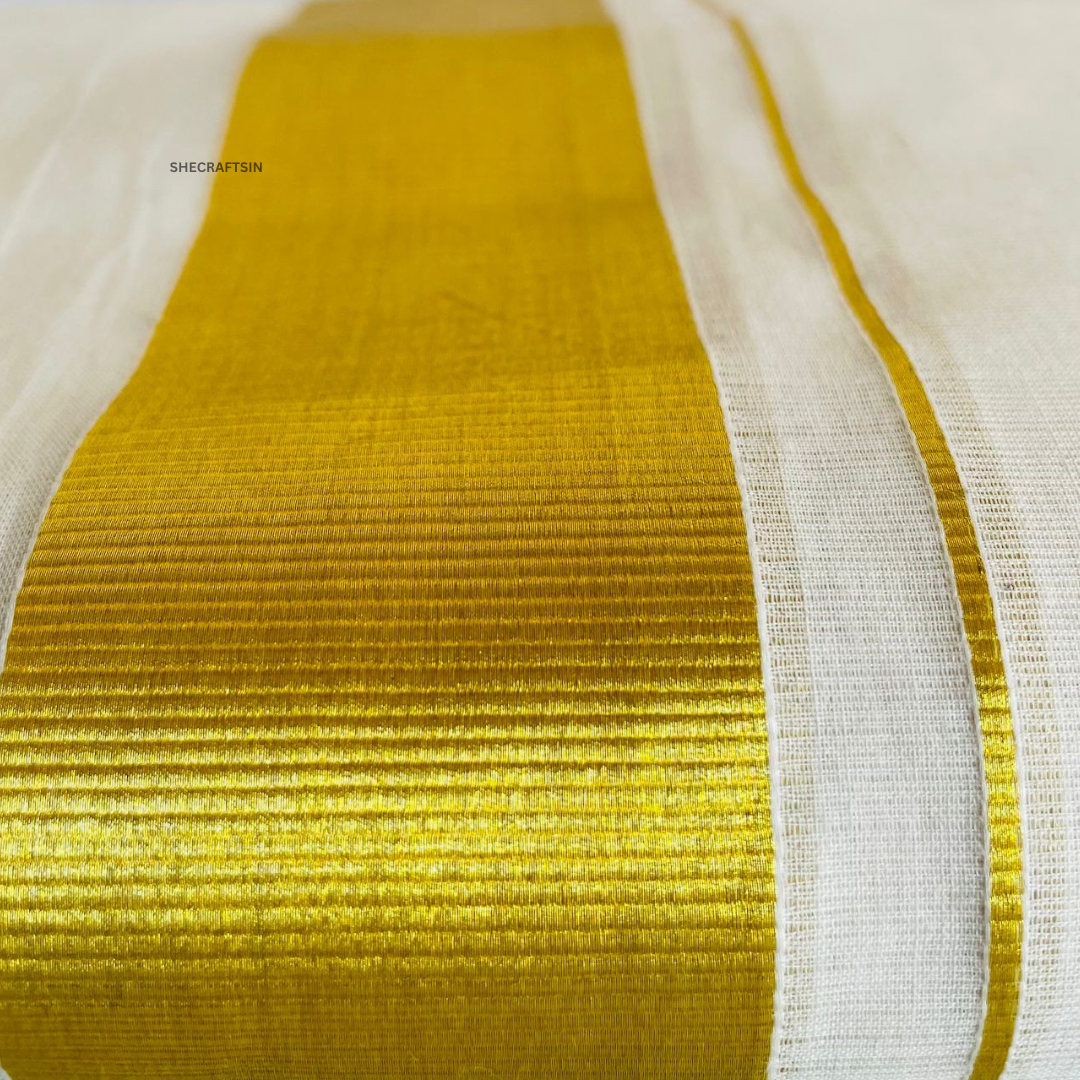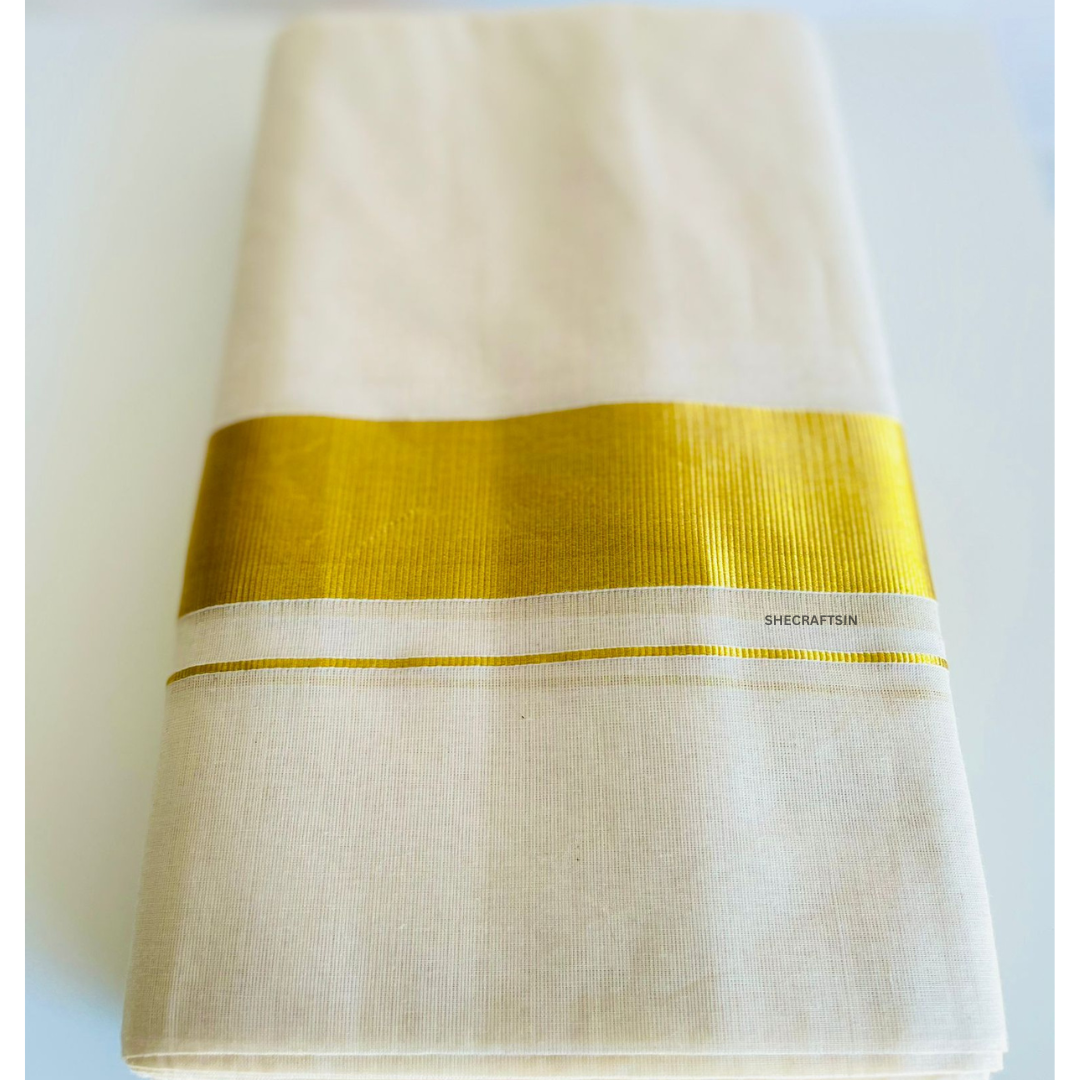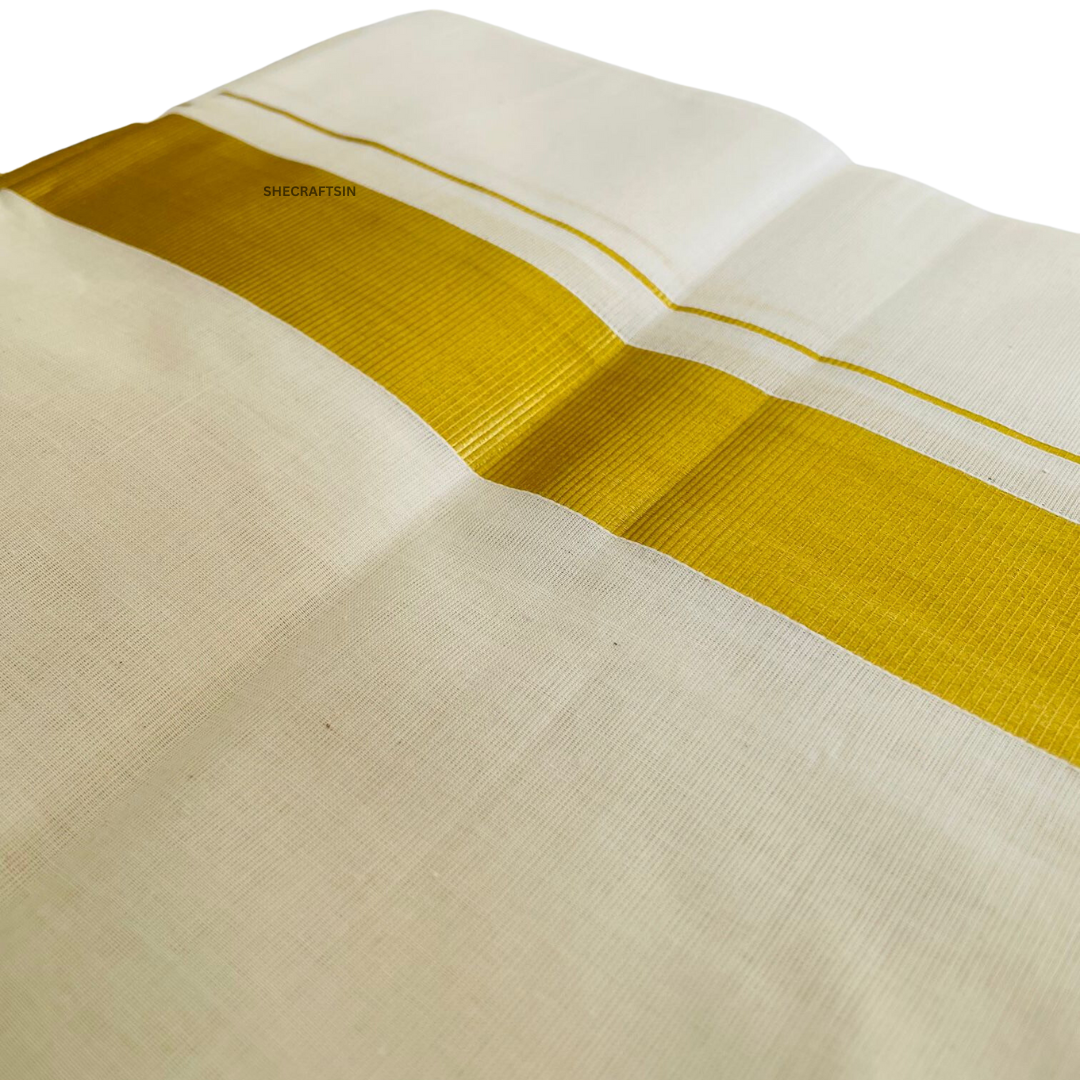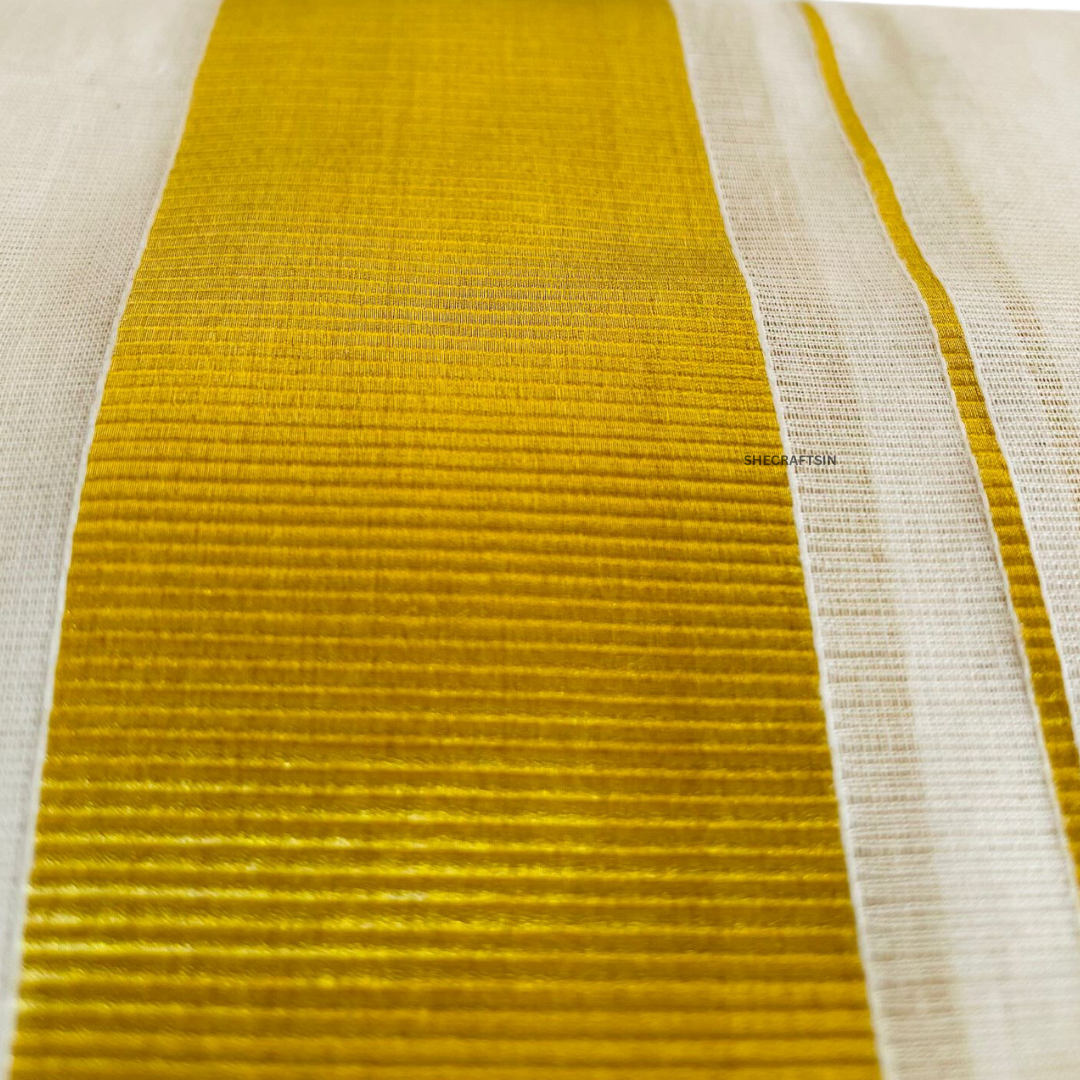She Crafts In
KERALA HANDLOOM KASAVU MUNDU | DHOTHI | KASAVU | MEN'S DHOTHI | ONAM WEAR | KERALA ATTIRE
KERALA HANDLOOM KASAVU MUNDU | DHOTHI | KASAVU | MEN'S DHOTHI | ONAM WEAR | KERALA ATTIRE
Couldn't load pickup availability
Kerala handloom dhotis are known for their fine quality and intricate weaving patterns. They are handcrafted by skilled weavers using traditional techniques passed down through generations. The handloom industry in Kerala is renowned for its craftsmanship and attention to detail.
The Mundu is a versatile garment and is worn on various occasions, including festivals, weddings, and formal events. It is often paired with a shirt or a traditional Kerala-style jacket called the Jubba. The dhoti is draped around the waist, with one end pleated and tucked in at the front, while the other end is wrapped around the legs and pulled between them to secure it in place.
Kerala handloom dhotis are not only a symbol of tradition and cultural identity but also represent the artistry and heritage of Kerala's handloom industry. They are highly valued for their comfort, breathability, and aesthetic appeal.
Kerala handloom dhoti, also known as Mundu, is a traditional garment worn by men in the Indian state of Kerala. It is a rectangular piece of fabric, usually made of cotton, that is worn around the waist and extends to cover the legs. The Mundu is typically white or off-white in color with a simple and elegant design.
WASH :
To wash a Kerala handloom dhoti, it is important to handle it with care to preserve its quality and color. Here's a general guide on how to wash a handloom dhoti:
-
Handwashing method: Handwashing is usually recommended for delicate handloom fabrics like the Kerala handloom dhoti. Fill a clean basin or sink with lukewarm water and add a gentle liquid detergent specifically formulated for delicate fabrics.
-
Soak the dhoti: Submerge the dhoti in the soapy water and gently agitate it for a few minutes to ensure even distribution of the detergent. Allow it to soak for about 15 to 20 minutes, but avoid excessive soaking
- Ironing: Once the dhoti is completely dry, you may lightly iron it using a low heat setting. Place a thin cotton cloth over the dhoti to protect it from direct heat and then press gently.
